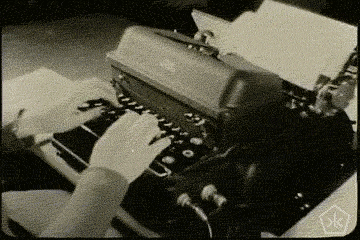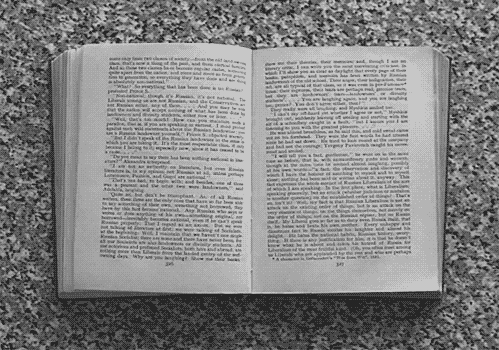Here’s a story that I’ve never told anyone before.
Don’t judge me.
A few days after my 25th birthday, I realized that I had never eaten a Big Mac before.
Seriously. How had I gone a quarter of a century without experiencing what’s considered by many to be a cornerstone of Americana?
I didn’t know much about the burger itself except for its “special sauce.” Needless to say, I was intrigued.
After all, nobody can resist the allure of a secret ingredient.
What does this have to do with marketing content?
We’re getting there.

The Big Mac itself is Advertising 101. The iconic packaging, the special sauce, the larger-than-life presentation.
I don’t eat much fast food, but I was ready to have my mind blown after taking that first bite. The hype was real.
Of course, when I actually did chow down, I was utterly disappointed. The burger itself was nothing to write home about.
And the “special sauce?” That ever-so-secret ingredient?
Meh.
The Problem with Special Sauce
Spoiler alert: Big Mac sauce is basically Thousand Island dressing. The recipe has been around for years. Big whoop.
In short, “special sauce” isn’t so special after all, nor is it a secret.
Regardless, the marketing world is obsessed with the concept of secrets.
The secret to fat loss. The secret to better sex. Getting rich. Whatever.
And most of the time, secrets do reel us in. Everyone wants the inside scoop; meanwhile, secrets build desire.

But in an era where Google and Wikipedia are available in our pockets at a moment’s notice, legitimate secrets are harder and harder to come by.
“Secrets” often get exposed quickly in the information age where everyone’s bullshit detector is pretty strong.
Same rules apply to writing.
Whenever I hear about the “secret” to becoming a better writer, I’m dubious. You should be, too.
If you think that mastering the writing craft or creating better content involves some sort of “special sauce” or “one weird secret,” I’ve got bad news, kiddo.
Good Writing Doesn’t Come with Special Sauce
Here’s the thing about writing: there are no secrets.
Think about it. Humans have been writing since roughly 3,000 B.C. Fast forward to present day where it’s pretty easy to tell “good” writing from trash.
Likewise, we have a pretty damn good idea of what effective advertising looks like since Claude Hopkins published Scientific Advertising in 1923.

The concept of some sort of “secret” or “special” sauce for writers is amusing. Like, there’s just something you can dab on your articles or copy to instantly make it more enticing for readers.
We wish.
Sure, there are stylistic techniques you can employ and guidelines to follow, but that doesn’t replace talent or practice. Yet given how many people struggle with the written word, the desire for such a sauce is understandable.
The Not-So-Secret Sauce for Better Writing
When I taught high school, my students would occasionally ask me a very loaded question:
“How do I write better?”
My reply?
“Read more and write more.”
Every now and then a friend or acquaintance asks me how they can improve their writing.
Know what I tell them?
“Read more and write more.”
My advice to new content writers trying to break into the marketing world?
“Read more and write more.”
Wait, That’s It? Seriously?
Yeah.
Maybe it’s snarky advice. Maybe it’s not what people want to hear.

But it’s the truth.
Absorb words. Bleed words. Repeat.
“But what should I read?”
Whatever you want, dude.
There’s this quote by Faulkner that I absolutely love:
“Read, read, read. Read everything — trash, classics, good and bad, and see how they do it. Just like a carpenter who works as an apprentice and studies the master. Read! You’ll absorb it. Then write. If it’s good, you’ll find out. If it’s not, throw it out of the window.”

Don’t make the mistake of just reading a bunch of nonfiction, either. Many marketing books are often repetitive and tedious. Sure, read a book or two on copywriting (I can recommend a few here), but look beyond marketing-related content.
Read some fiction: that’s where you learn style and voice. I’m a sucker for authors like Vonnegut, Salinger and Bukowski whose characters suck you in with their humor and conversational voices. Likewise, wordsmiths like Hemingway grab you with a punchy and straightforward style.
Read some short novels. Read the stuff you were supposed to read in high school but were too antsy to sit through. You’ll be a better writer (and human being) because of it.
“Okay. But what should I write?”
Again, that’s up to you.
Ready for another quote? This time it’s from Hemingway:
“There is nothing to writing. All you do is sit down at a typewriter and bleed.”

If you’re interested in starting a freelance writing business or writing professionally, start a blog from scratch or use platforms such as Medium or LinkedIn.
Beyond that, you can practice writing sales letters or advertising copy if you want.
But don’t be afraid to write fiction, too. Write rants. Write reviews of your favorite albums and films.
Don’t feel like you have to exclusively write about the latest marketing mumbo jumbo. Take some time to write for yourself.
Stop Searching for Special Sauce and Write
There’s nothing wrong with looking for resources and shortcuts to improve your writing.
That being said, the best way to get better is by taking action.
Read something, write something. Repeat.
Oh, and don’t be afraid to challenge yourself (think: more words per day, more difficult topics).
It’s not going to kill you.
I can’t say the same for that Big Mac, though.
Leave a Reply